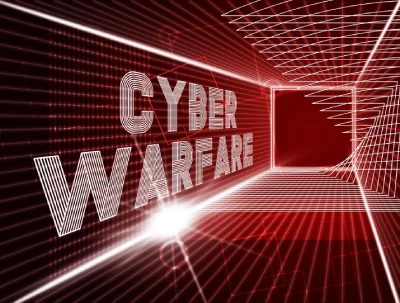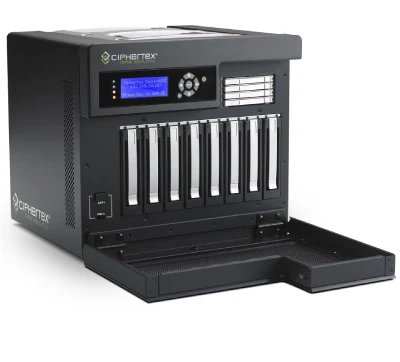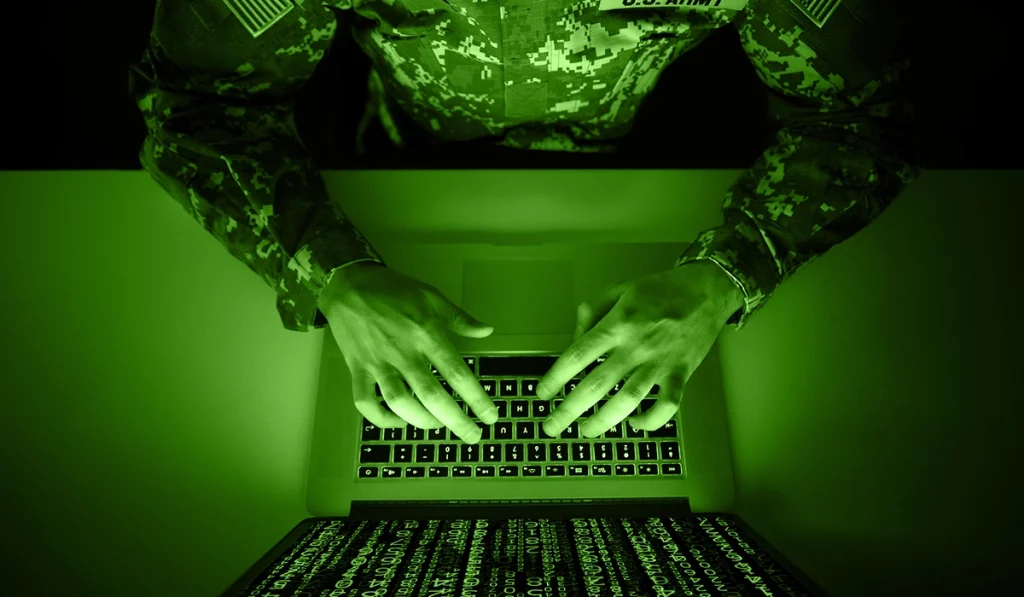Ciphertex Data Security®, known for providing the most reliable data security solutions, provides encryption and data storage technologies to the U.S. military. These solutions meet the highest standards and government mandates. When it comes to military data security, we provide ruggedized data storage networking and security solutions, including software, portable NAS servers, and RAID protection employing the Advanced Encryption Standard (AES) employed by U.S. government and military organizations.
In the 21st century, information security has emerged as a major national security concern. Communications, surveillance, signal processing, weapons, and vehicle control systems are all computerized. A cyberattack can have far-reaching effects on a military organization. Without proper protection, adversaries can easily corrupt, spy on, or steal security and defense data; today’s threats go far beyond tanks, machine guns, and bombs.
The threats are so far-reaching, even the Pentagon isn’t immune. In 2008, a cyberattack on the United States Department of Defense (DoD), considered the worst breach of military computers in U.S. history at the time, spread malicious code through classified and unclassified systems via a USB flash drive. The damage took 14 months to clean up, and the Pentagon subsequently banned USB drives.
Since then, the United States established the Cyber Command. It oversees all the nation’s cyberspace operations and synchronizes all military networks.
Role of the Military in Cyberattack Prevention
Cybersecurity plays a critical role in how the military protects every citizen. To fulfill this duty, military organizations must also defend themselves against cybercrime. The U.S. military now works to better understand cyber-defense challenges. It integrates cybersecurity into operational planning and continuously evolves its practices to detect, respond to, and prevent cyberattacks.
With cybersecurity such a hot topic in the U.S. military, there are five main reasons why data security is so important in this sector.
Prevention of Cyber Attacks
A Department of Defense official defined a cyberattack in 2015 as the theft of intellectual property that threatens national security and economic prosperity. Such an attack can deliberately damage, destroy, or corrupt private or government systems, leading to financial loss, destruction, injury, or even death. Disruptions in the flow of information can still harm data systems without causing physical damage, making a broad-spectrum approach to data security essential.
Aside from preventing malicious attacks, data security solutions for military and federal agencies provide the following benefits:
- Secure Sensitive Data: Cybersecurity protects personal information, such as Social Security numbers and bank accounts, and also protects national secrets. Hackers with the right tools can access any of this data on vulnerable computers and networks. Cyber criminals can also hack into systems where they can access national security information and use it to their advantage.
- Avoid Data Loss: Whether by accident or intentionally, the loss of data is a serious security risk. Hackers can use ransomware to restrict access to data and extort money from governments. Extremist groups have also used cyberattacks to spread propaganda by manipulating existing data.
- Prevent Unauthorized Data Transfer: Adversaries can exploit the unauthorized movement of information to expose national secrets or access financial networks, using the funds to develop new cybersecurity threats or weapons programs. Cryptocurrency has helped make this threat more realistic.
- Data Protection During Natural Disasters: Storms, floods, power outages, earthquakes, and other widespread natural disasters, or even a localized event, can put data at risk. Advanced data security not only stores information in safe locations but includes systems that can withstand high temperatures, impacts, vibration, shock, humidity, and other factors.
- Ensure National Security: The White House’s International Strategy for Cyberspace (2011) defines a cyberattack as an act of war. If diplomatic, economic, and other options fail, the military may respond with force.
Data Security Problems in the Military

The military faces several challenges regarding cybersecurity. Many adversaries have turned to digital means to launch attacks that can be extremely damaging. Stealing or exploiting data; launching denial of access or service attacks; and destroying, corrupting, or manipulating information in a way that threatens networks and connected computer systems are just some threats military organizations face. As a result, cyberattacks are considered significant threats to national security.
Other data security problems the military faces include untrained IT staff. Without IT staff training, it is difficult to recognize and deal with the latest cybersecurity threats. Training and awareness are among the top priorities in the DoD’s Information Assurance and Accreditation Process. After 2014, cybersecurity became the priority in its Risk Management Framework. In addition, outdated infrastructure and software also make digital assets and physical systems vulnerable, so information systems must be current and interoperable.
How to Improve Military Data Security
The military’s responsibility is to protect the citizens of the United States and keep our nation’s sensitive information secure. The United States established Cyber Command in 2009 to protect DoD information networks and conduct military cyberspace operations. Each branch of the United States military has its own command component—the Army Cyber Command, the Marine Corps Forces Cyberspace Command, the Sixteenth Air Force, and the Navy Cyber Forces. While these organizations provide centralized cyber defense entities, it is the technology they employ that strengthens their stance against cybercrime.
Secure Data Solutions for the Military and Federal Government
Ciphertex® specializes in data security equipment used by military and federal government agencies. Ciphertex® designs custom solutions for transportability, integrating multifactor authentication and disaster recovery. GSA Schedule 70, FIPS and NIST approved solutions from Ciphertex® include:
- Portable NAS Servers: Our compact NAS servers are solid, rugged, and scalable. They grow with your storage needs and suit a wide range of applications. You can quickly move and connect these systems into heterogeneous environments, making secure data storage readily available.
- Portable RAID Protection: RAID or Redundant Array of Independent Disks technology allows for data storage virtualization and combines multiple disk drive components. Ciphertex® RAID products feature hardware data encryption, direct connection to HDD imagers for forensics applications, and rugged military-grade metal enclosures.
- Quick-Link Cable: Available in 7- and 20-foot lengths, it securely connects up to ten Windows-, Mac-, or Linux-based computers to a single Ciphertex SecureNAS®. The cable uses a USB 3.0 interface and also supports Quad Port USB 3.0 PCIe Controllers and LP/SATA power and charging,
Contact Ciphertex®

At Ciphertex® Data Security, we understand what it takes to deliver rugged military data security. These impenetrable solutions encrypt sensitive information and help strengthen national security at all levels.
Ciphertex Data Security® has worked with the U.S. military, defense contractors, and other organizations that face threats of cybercrime and cyberwarfare every day. A Department of Defense approved Environmental Testing Lab has tested and certified Ciphertex® portable NAS and data servers, which employ military-grade encryption to fully protect data from all forms of loss and theft. To learn more, browse our products online at www.ciphertex.com, visit our Support Center, or call us at 818-773-8989 today.
